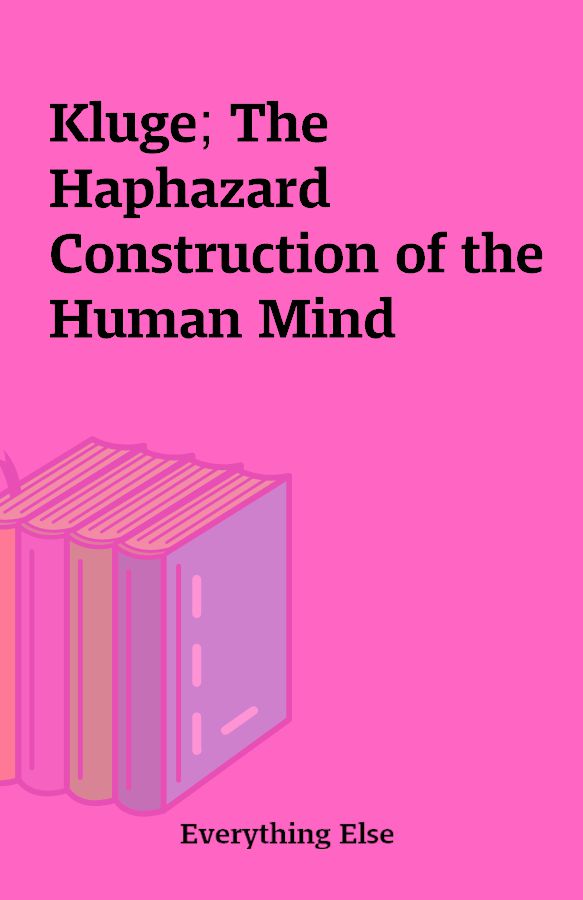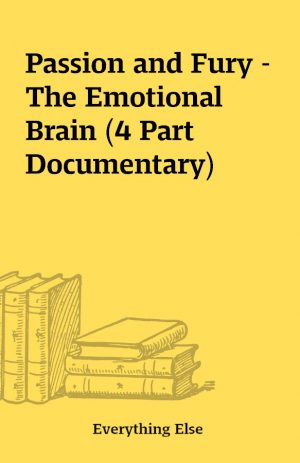Kluge; The Haphazard Construction of the Human Mind
Kluge_The Haphazard Construction of the Human Mind
[1 audiobook – 130 mp3s]
Description
By Gary MarcusHow is it that we can recognize photos from our high school yearbook decades later, but cannot remember what we ate for breakfast yesterday? And why are we inclined to buy more cans of soup if the sign says “LIMIT 12 PER CUSTOMER” rather than “LIMIT 4 PER CUSTOMER?” InKluge, Gary Marcus argues convincingly that our minds are not as elegantly designed as we may believe. The imperfections result from a haphazard evolutionary process that often proceeds by piling new systems on top of old ones—and those systems don’t always work well together. The end product is a “kluge,” a clumsy, cobbled-together contraption. Taking us on a tour of the essential areas of human experience—memory, belief, decision making, language, and happiness—Marcus unveils a fundamentally new way of looking at the evolution of the human mind and simultaneously sheds light on some of the most mysterious aspects of human nature.Why are we subject to irrational beliefs, inaccurate memories, even war? We can thank evolution, Marcus says, which can only tinker with structures that already exist, rather than create new ones: Natural selection… tends to favor genes that have immediate advantages rather than long-term value. Marcus (The Birth of the Mind), director of NYU’s Infant Language Learning Center, refers to this as kluge, a term engineers use to refer to a clumsily designed solution to a problem. Thus, memory developed in our prehominid ancestry to respond with immediacy, rather than accuracy; one result is erroneous eyewitness testimony in courtrooms. In describing the results of studies of human perception, cognition and beliefs, Marcus encapsulates how the mind is contaminated by emotions, moods, desires, goals, and simple self-interest…. The mind’s fragility, he says, is demonstrated by mental illness, which seems to have no adaptive purpose. In a concluding chapter, Marcus offers a baker’s dozen of suggestions for getting around the brain’s flaws and achieving true wisdom. While some are self-evident, others could be helpful, such as Whenever possible, consider alternate hypotheses and Don’t just set goals. Make contingency plans. Using evolutionary psychology, Marcus educates the reader about mental flaws in a succinct, often enjoyable way.
You must be logged in to post a review.






Reviews
There are no reviews yet.